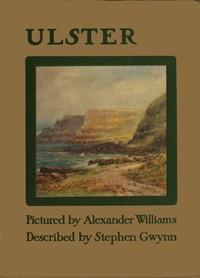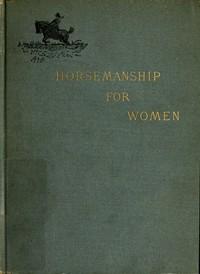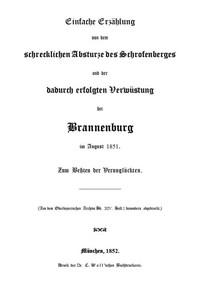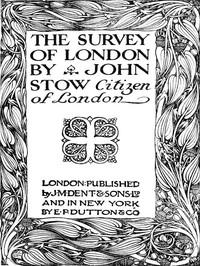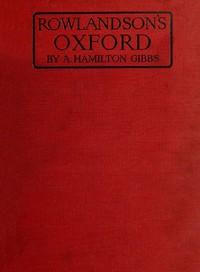|
|
Read this ebook for free! No credit card needed, absolutely nothing to pay.Words: 12291 in 3 pages
This is an ebook sharing website. You can read the uploaded ebooks for free here. No credit cards needed, nothing to pay. If you want to own a digital copy of the ebook, or want to read offline with your favorite ebook-reader, then you can choose to buy and download the ebook.

: Ulster by Gwynn Stephen Lucius Williams Alexander Illustrator - Ulster (Northern Ireland and Ireland) Description and travel@FreeBooksWed 07 Jun, 2023 like nettles after cutting.--Elizabeth, in one of the phases of her diplomacy, sought to enlist this warrior on her side, and sent him a patent for his estates and chieftaincy as Lord of the Pale, engrossed on parchment. They brought him the writing to his castle of Dunluce, and he hacked the scroll to shreds. "With the sword I won it," he said; "I will never keep it with the sheepskin." Dunluce, which stands on a projecting rock, approached only by a narrow footway over a very deep natural trench, has to stand a battery more continuous than Perrot's cannon could bring to bear. The sea is under it, for a cave pierces the rock, and wind and wave are for ever straining at the old fortress. Part of it fell in 1639, and to-day they say the whole ruin is menaced with collapse; and, since it stands in private grounds, no public authority can intervene to save it. For some heads the crossing of that wall into Dunluce has a danger; and a fall would be serious. But the real test of resistance to giddiness can be made at the famous hanging bridge which joins the mainland with the island rock of Carrickarede, near Port Ballintoy. The bridge consists of planks laid two abreast, and lashed to ropes; a single rope is the only handrail. The people use it to get out to their nets and boats for the salmon fishing, which are kept out here, and also, since there is grass on the island, for carrying sheep across on their backs. For my own part I stepped on to it readily enough; but when it bent down steeply under me, and inclined to swing, the surprise was not pleasant. And though I forced myself to cross it a second time, back and forward, to convince myself that there was no necessity for qualms, I cannot say that the qualms wholly disappeared. As for carrying a sheep over, or a bale of nets, heaven defend me! But I never heard that anyone, native or tourist, drunk or sober, came to grief there! The drop is about eighty feet into deep water between cliffs. THE MAIDEN CITY Derry and Raphoe have for a century been in the Protestant Church one united see, and in the days before disestablishments, made a princely preferment. You can see the proof of it at Castlerock, where the line from Coleraine strikes out on the shore of Lough Foyle by the long Magilligan strand. Here is Downhill, the seat built in the eighteenth century by that amazing prelate Lord Augustus Adolphus Hervey, Earl of Bristol and Bishop of Derry, who took a leading and not a very pacific part in organizing the volunteers and in winning Ireland's legislative independence. "He appeared always", says Sir Jonah Barrington, "dressed with peculiar care and neatness, generally entirely in purple, and he wore diamond knee and shoe buckles; but what I most observed was that he wore white gloves with gold fringe round the wrists and large gold tassels hanging from them." A troop of horse headed by his nephew used to escort him everywhere and to mount guard at his door. Later, growing tired of Ireland, he migrated to Italy on the plea of ill health; and though many of his costly purchases were sent home to Downhill, where unhappily a fire destroyed the most valuable, he never came back, but remained abroad , "adopting the lax moral habits of Neapolitan society", and in extreme old age writing letters to Emma, Lady Hamilton, "in a strain of most unepiscopal fervour". There are no such bishops nowadays, but my childhood was familiar with the last of Lord Bristol's successors under the old order--the late Bishop Alexander, most eloquent of divines, afterwards Primate of Ireland. His talents brought him to the episcopate, while still a young man, only a year or two before disestablishment, and the life-interest in his ?12,000 a year came to be compounded, not only for his own benefit, but for that of the Church. While the financial negotiation was still in progress, my father, then rector of a parish in Donegal, and financier-in-chief to the diocese, sent his bishop out for a day's driving in charge of a young curate, and trysted to meet them on Mulroy Bay. Arrived there, he saw with dismay the bishop, not on land but afloat, being sculled by the curate through the numberless rocks and swirling currents of Mulroy in a battered curragh--a hundred thousand pounds of ecclesiastical capital divided from submersion by a piece of tarred calico. And the famous orator, even at that period of his life, could not have weighed less than eighteen stone. Long years after, the curate, become venerable in his turn, remembered and recalled for me the rating which he received when at last he landed his passenger. But the frontier town, like all frontier towns in a country that has been much fought over, keeps an intense, militant, and aggressive character. Derry stands for the extreme type of Protestant assertion--oddly enough, for in the beginning of its history, it was the monastic seat, Doire Coluimchille, "Columba's Oakgrove", to which that great apostle of Christianity looked back from his mission overseas--"thinking long" in Iona for-- "Derry mine, my own oakgrove, Little cell, my home, my love". There is no reason to doubt the authenticity of that Irish poem, transmitted in ancient manuscript, which a scholar has thus translated--Columba's lyric cry towards the Ireland which he had left. Yet in truth it was the people who had rescued themselves. In the previous month of December, before hostilities were really declared, King James had been imbecile enough to withdraw the troops which held the city. A fresh garrison under Lord Antrim was marching in, and was seen actually outside the walls. The city fathers deliberated; it was thirteen prentice boys of the town who armed themselves, rushed to the Ferryquay gate, seized the keys, and locked it in the teeth of Antrim's men, when they were within sixty yards of the entrance. This deed is commemorated annually on December 18th, when Lundy, the officer who commanded in James's interest, is duly burnt in effigy--or used to be. Nowadays Catholic and Protestant are so evenly balanced in the "Maiden City" that such demonstrations risk a formidable riot, and are accordingly kept in check. Free books android app tbrJar TBR JAR Read Free books online gutenberg More posts by @FreeBooks
: Horsemanship for Women by Mead Theodore H Theodore Hoe Parker Gray Illustrator - Horsemanship@FreeBooksWed 07 Jun, 2023

: Einfache Erzählung von dem schrecklichen Absturze des Schrofenberges und der dadurch erfolgten Verwüstung bei Brannenburg im August 1851 Zum Beßten der Verunglückten by Dachauer Sebastian - Landslides Germany Brannenburg@FreeBooksWed 07 Jun, 2023
|
Terms of Use Stock Market News! © gutenberg.org.in2025 All Rights reserved.

